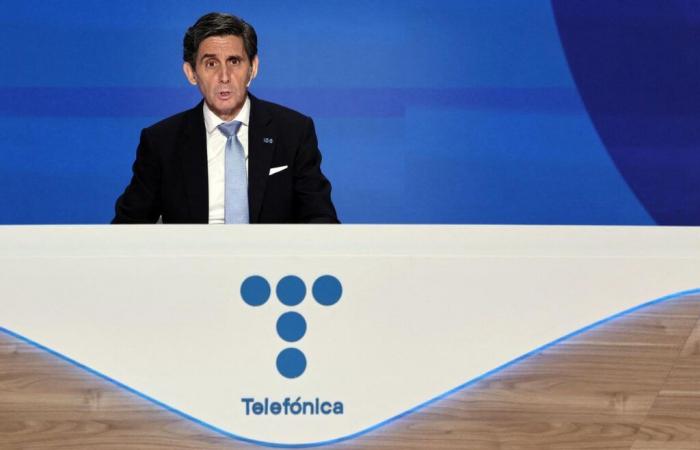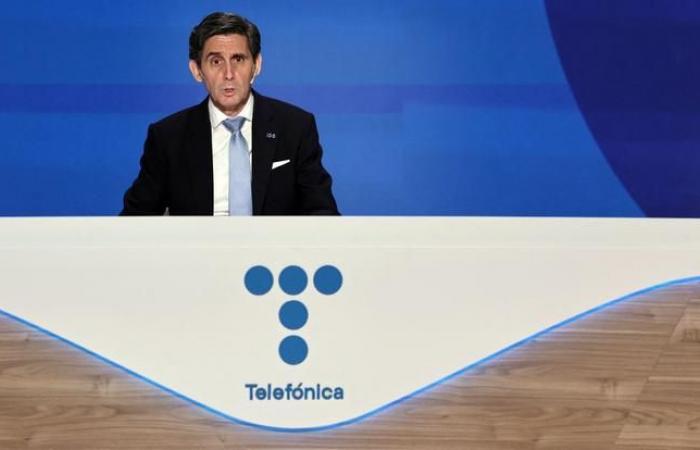At the heart of vast maneuvers since the surprise entry of the Saudi company STC, the Spanish telecoms giant, Telefonica – of which the State has once again become a major shareholder – announced on Saturday January 18 a surprise change at its head to open a “new stage”.
In office since 2016, José Maria Alvarez-Pallete, whose mandate expired this year, was replaced as executive chairman of the group by Marc Murtra, who was until now president of the Spanish consulting and technology company Indra, of which the State is the controlling shareholder.
Telefonica, which ratified this decision during an extraordinary board of directors convened urgently, explained it by the desire “of certain important shareholders” of the group to begin “a new stage”.
Read also: Article reserved for our subscribers Entry into the capital of Telefonica: “This is the first large-scale Saudi operation on Spanish soil”
Read later
Former historic telecoms operator in Spain, Telefonica is experiencing a turbulent period since the entry into its capital of the Saudi group STC, which acquired 9.9% of the operator in September 2023. This surprise operation aroused the concern of the government of the Spanish left, which had announced in return a 10% stake in the telecoms giant by the public fund SEPI (Sociedad Estatal de Participaciones Industriales), taken out of Telefonica's capital in 1997.
The government of socialist Pedro Sanchez had justified this operation by the strategic importance of Telefonica, particularly in the military field, the group offering telecommunications services to the Spanish army.
The public fund SEPI controls Indra from which comes Marc Murtra, who is, according to the Spanish economic press, considered close to the government.
Spanish banking group La Caixa, which initially owned 2.69% of the operator, has also increased its stake in Telefonica to 9.9% in recent months, via its investment holding company Criteria Caixa, to reach the level of the Spanish State.
“Untimely news”
After the announcement of this surprise change at the head of the Spanish giant, the UGT union, one of the main ones in the country, expressed its doubts regarding “untimely news” and said he hoped that “SEPI clarifies the reasons” of this decision.
Le Monde Buying Guides
-Reusable water bottles
The best water bottles to replace disposable bottles
Lire
Cuca Gamarra, head of the Popular Party (right), the main opposition party, demanded “explanations” of the government which she accused of wanting “colonize private companies”.
Telefonica is also facing increased competition in a Spanish market undergoing restructuring with the merger of Orange and MasMovil, and the sale of Vodafone Spain to the British fund Zégona.
Due to its heavy debt, the group began a major strategic change a few years ago by refocusing on its four main markets (Spain, Germany, United Kingdom and Brazil) to improve its profitability. It also began reducing its workforce at the end of last year, cutting 3,400 of its 16,500 jobs in Spain.
In July, Telefonica confirmed its financial targets for 2024 after seeing its net profit increase by 29% in the first half, notably thanks to good commercial performance in Spain.
Read also | Article reserved for our subscribers Telefonica agrees with its unions on the dismissal of 3,421 people in Spain
Read later






